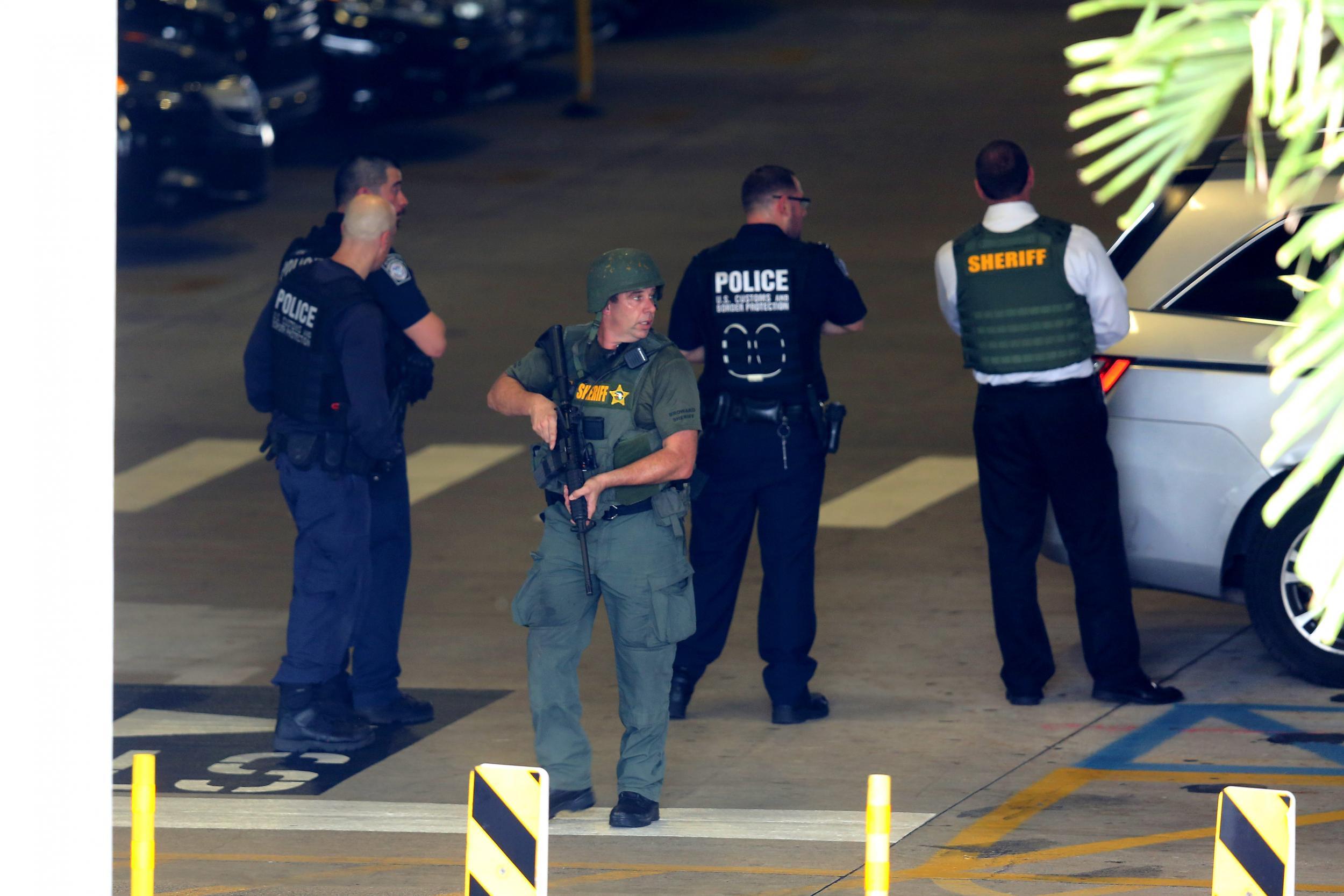Fort Lauderdale Airport shooting: How can we stop such gun attacks from ever happening again?
Yes, gun owners are allowed to check their weapons into the hold of an aircraft, but there are still measures airports can take to keep them away from passengers

Your support helps us to tell the story
From reproductive rights to climate change to Big Tech, The Independent is on the ground when the story is developing. Whether it's investigating the financials of Elon Musk's pro-Trump PAC or producing our latest documentary, 'The A Word', which shines a light on the American women fighting for reproductive rights, we know how important it is to parse out the facts from the messaging.
At such a critical moment in US history, we need reporters on the ground. Your donation allows us to keep sending journalists to speak to both sides of the story.
The Independent is trusted by Americans across the entire political spectrum. And unlike many other quality news outlets, we choose not to lock Americans out of our reporting and analysis with paywalls. We believe quality journalism should be available to everyone, paid for by those who can afford it.
Your support makes all the difference.As the horror of the tragedy unfolded, a frequent response was astonishment that guns could be carried in checked baggage on commercial flights.
Yet the rules on flying with weapons and ammunition are based on a simple premise: that an individual who is legally entitled to possess a gun in a particular locality – a country or US state – should be able to transport the weapon.
Airlines insist that they are told in advance: some, like British Airways, demand three days’ notice. But within the US, where possession of firearms is commonplace, the airlines simply ask that you tell them at check in.
The gun must be unloaded and packed in a locked case inside your checked baggage. Some countries have additional restrictions (for example South Africa and Italy insist that the weapon and the ammunition are in separate cases), and airlines typically limit the amount of ammunition to 5kg. But transporting guns is an everyday activity.
At the end of each journey, the passenger picks up their weapon and ammunition from baggage reclaim, or occasionally a separate desk in the baggage hall. Usually they then leave the airport. But there have never been any restrictions to prevent an atrocity of the sort that took place in Florida’s second-biggest airport last weekend.
Aviation security is focused squarely on a particular threat: that armed hijackers could once again take over an aircraft, or attack it by some other means. So everyone, and everything, that goes “airside” is screened very carefully. But people accessing “landside” areas of airports are not screened. And that includes arriving passengers. Once you’re at baggage reclaim, the thinking goes, you’re not getting back on the plane.
A top safety expert says the casual approach to transporting weapons must now stop. Adrian Young, senior aviation consultant for the Dutch firm To70, has called for swift action to prevent a repeat of the Fort Lauderdale massacre.
“A quick fix would be to have weapons handled as dangerous goods,” he says. “That’s what they are, after all. They should be checked in and collected at cargo areas, or at least areas away from the passengers.”
Mr Young concedes such an arrangement would be “not very convenient for the gun owner”. But, he says: “My view is clear. It’s about keeping weapons away from large groups of people.”
In the US, and other countries, a murderer with a gun need not arrive on a plane to cause mayhem at an airport. The domestic baggage reclaim area in American airports is usually adjacent to the roadway with just a glass door between, because it helps people to have only a short distance to walk to their cars. Sometimes there is a dedicated security presence at baggage reclaim, but in my experience that is aimed at preventing theft of luggage from the area, rather than deterring armed attackers.
The Fort Lauderdale attack appears to be a random shooting event of the kind that are sadly common in the US, which happens to have taken place at an airport, rather than an aviation security incident involving terrorism. Even so, it raises important challenges about keeping passengers and staff safe.
Evidence from the attacks at Brussels and Istanbul airports last year suggests that the better we get at preventing terrorists boarding planes, the more they switch attention to high-profile aviation targets that are poorly protected. And that means airports.
Until a holistic approach to aviation security becomes the norm, my advice remains the same as ever: get to an airport as late as you realistically can, spend as little time landside as possible, and reach the relative safety of airside quickly.
Join our commenting forum
Join thought-provoking conversations, follow other Independent readers and see their replies
Comments